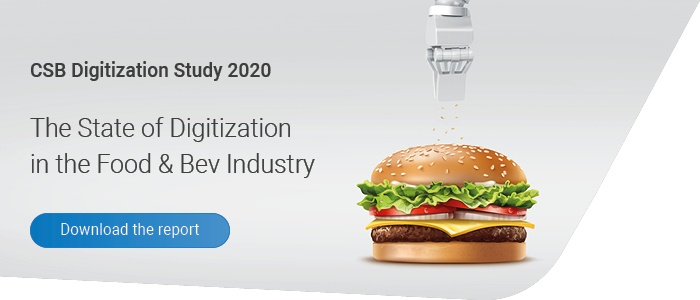Online retailing of food and delicatessen is booming. With a growth rate of 27.6 percent in 2016, this segment has been the biggest driver of all submarkets with regard to overall online sales. The overall Internet trade, by comparison, increased by "only" 12.5 percent.
However, a glance at the total figures also reveals that plenty of potential remains to be unleashed. While online retailers of books, electronic articles or clothes are doing fairly good business, only about one percent of the total sales of some 170 billion euro in the food industry are generated by Internet trade. Other countries are much more advanced: in the USA, Great Britain and France, the share was between 3 and 4.4 percent in 2014. It's not surprising that many food retailers ramp up their investments in e-commerce. In Germany, a new major player is getting ready to enter the market.
Amazon has realized the potential long ago. Apparently, the Internet giant is about to launch its Amazon Fresh delivery service in Berlin in April this year. Consequently, not only will large supermarkets and discounters will have to struggle more, but also small food retail businesses will have to get on the online train if they do not want to miss out on the opportunity. Manufacturers would be well advised, too, to establish the global showcase for the sale of their products.
IT is the key success factor
Using the right technology is a factor for success. In particular, ERP systems are in demand as the technical basis for the digital shopping cart. This has been confirmed by the latest survey of the EHI Retail Institute. According to the study results, decision-makers primarily focus their investments on optimizing or modernizing their ERP systems. About half of all trading companies plan to invest in enterprise resource planning systems in the next three years to provide the technical conditions for omnichannel strategies. Omnichannel uses varying sales channels including stationary, online and mobile ones. Combining these sales channels is possible, too, for example with the click & collect concept: Here, customers submit their orders online and finally pick up their goods at the store or subsidiary. However, according to the EHI study, many of the IT solutions that are currently implemented have deficiencies in terms of performance, flexibility and modularity.
Wolfgang, Stephan and Michael Otto consider themselves as well-set when it comes down to technology. Their company OTTO-Gourmet specializes in online sale of premium food. The three brothers were among the first in Germany to market their products online. The basis is a Magento online shop, which interfaces with the ERP software by CSB-System. This connection not only comprises price maintenance but also any food-related aspects, like details on weight, durability dates, lot size and, above all, traceability. The direct communication between CSB modules and online shop ensures that items are available at the time when an order is placed. As soon as the order comes in, picking and dispatch can be initiated. “This is how we guarantee quick response times, which in turn results in above-average customer satisfaction. The CSB-System supports us with integrated availability checks, taking into account the delivery times we have to observe,” says managing director Wolfgang Otto.
Regionalism also in the online shop
In addition to the IT system, sophisticated logistics contribute to the success of food shopping on the Internet today. Experts expect food e-commerce to gain further momentum in the future. According to Oliver Marz, CSB key account manager and trade expert, changing the way of thinking may be important also in geographical terms: “Small and medium-size enterprises should refrain from comparing their strategies with those of the big players, and they should not start out with cross-regional logistics.” This would be very complex to organize and costs lots of money. Instead, they should cater to regional and product-specific niches also with their online shops. “In this way, they can minimize the expenses for investments and marketing to promote their shops. This is precisely one of the objectives in our current promotion project RegioFood Plus.”
Online shops are increasingly important, but also the stationary sale is digitized. Amazon has recently opened a fully automated supermarket in Seattle, which demonstrates what is already feasible today. The central point is that at “Amazon Go”, no checkout is required, you simply use the app for paying. According to a report in Business Insider, Amazon is planning to open up to 2,000 food stores in the USA in the next ten years. Technology for sure will be an essential success factor for omnichannel.


